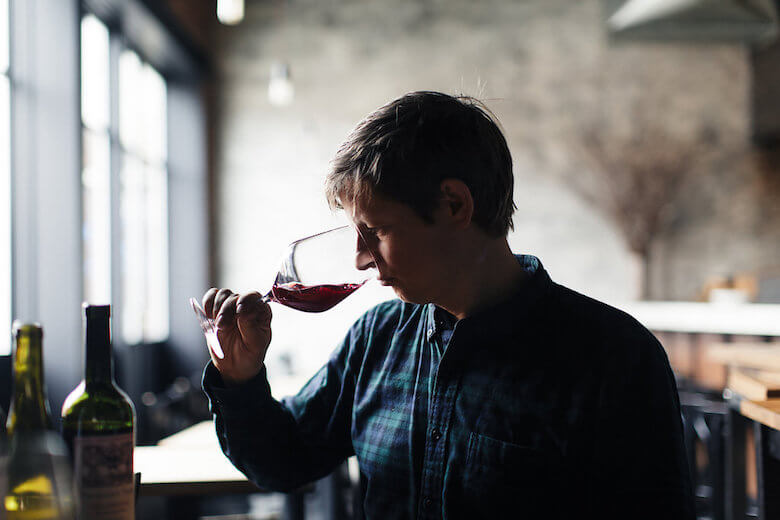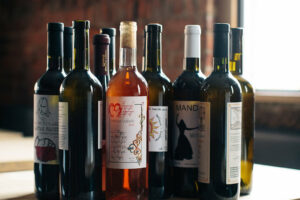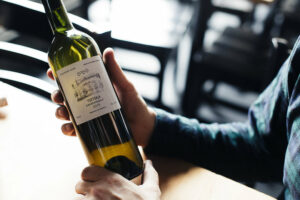
Wine importer: two simple words that conjure thoughts of a glamorous life of traveling, strolling through vineyards and swirling stemware. For Brooklyn’s Chris Terrell this reality is a bit different, though; as the sole employee of Terrell Wines, his regular work involves riding a bicycle while spreading the word about small, independent natural winemakers in an Eastern European country that’s almost become a second home.
Georgian wines have been getting more and more attention in recent years. If you’re into wine, you’ve likely tried them, and if you’ve tried a bottle in New York, chances are it’s from one of the 22 Georgian wineries who Terrell works with.
The vast majority of families in Georgia still make their own wine, and while exports are still hard to find in the U.S., they are developing a reputation thanks to the growing popularity of natural wines—aka those made with natural yeast, little to no added inputs from the vineyard to bottle and minimal technology. The result is often clean, earthy, bright wines that people seem to either immediately love or hate, with the former camp often being avid devotees.
“The first time I went to Georgia I cycled in,” Terrell recalls of his 2004 trip. “It wasn’t the Georgia you see today. At the border the guy asked me for a bribe to cross. I spent two weeks in the country cycling up to the western region where there were no hotels, so I’d knock on the door of different houses and say, ‘Is there a hotel here,’ and they’d invite me to stay with them.”
Terrell was living in San Francisco at the time and working in a completely different industry, but reading Hugh Johnson’s The Story of Wine inspired him to learn more about the history of winemaking—so he ventured to Georgia where people have turned grapes into wine for 8,000 years.

That first trip started his love affair with Georgian wines. Within three years of first visiting, Terrell quit his job, later moved to Brooklyn in 2012 and became one of the first Georgian wine importers in the U.S. Today, he is one of roughly 14, although that number grows almost monthly. He returns annually for research, works directly with family-owned vineyards and, in New York, has gotten bottles into some of the borough’s most beloved restaurants including Fort Defiance and Freek’s Mill as well as shops like 67 Wines & Spirits and Astor Wines & Spirits.
“He’s not the most typical wine guy, he’s more of a believer than he is a traditional importer, which is what makes me enjoy working with him so much,” says Alex Alan, wine director at Freek’s Mill.
The Gowanus restaurant’s wine list, which is 90 percent natural wine, focuses on three main categories: Georgian wine made in qvevri (clay fermentation and aging vessels buried underground), chenin blanc from the Loire Valley and beaujolais crus. The Georgian wine in particular pairs well with the richer food from the restaurant’s wood-fire oven.
“Chris represented all the wines I wanted to work with,” Alan says.

Word of mouth is often how Terrell ends up working with different New York City restaurants and shops, sometimes showing up with wine to different tastings in the city on his bike.
“As people buy more wine and get more interested in learning about it, there’s a higher probability they’re going to make their way to Georgian wine,” Terrell says.
Still, while many people in metropolitan areas have heard about Georgia, getting its wine out to other areas in the U.S. has been a challenge that Terrell enjoys, since it’s an opportunity to educate and advocate for the distinctiveness of these bottles.
Every year when he returns to Georgia, Terrell meets new winemakers, and while he’s not still knocking on their doors looking for a place for the night, the country retains a romantic calling for the wine importer.
“It’s really a meet the farmer kind of thing, it’s great,” he says.









